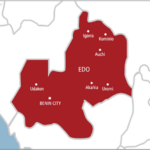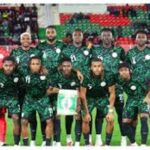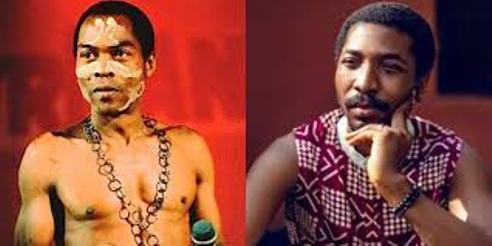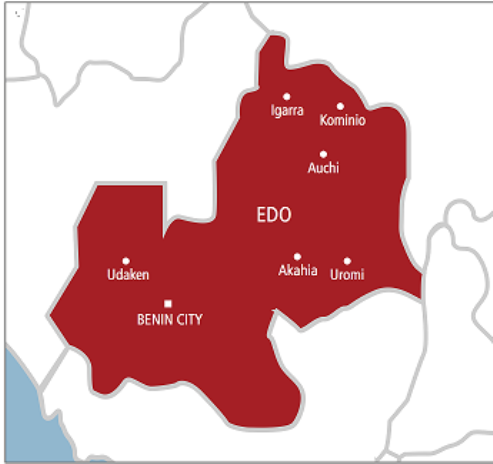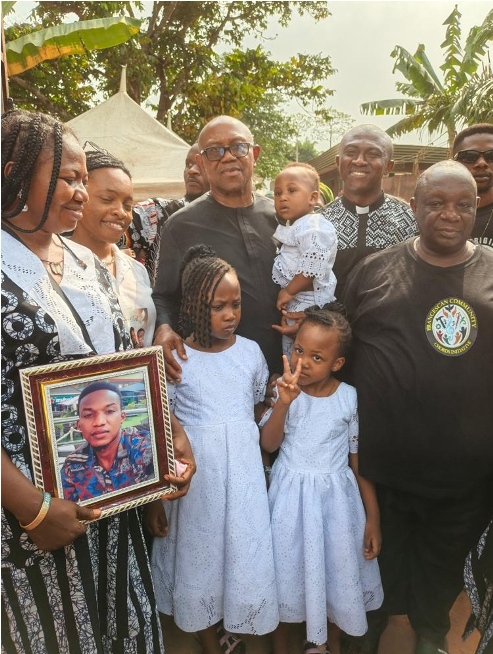LAGOS AUGUST 6TH (NEWSRANGERS)-Nigerian afrobeat multi-instrumentalist Omorinmade Anikulapo Kuti, known professionally as Made Kuti, has opened up about the complicated weight of legacy, privilege, and personal purpose as he continues the musical dynasty of his grandfather, Fela Anikulapo Kuti.
“Music is one of the worst professions where nepotism can succeed, because it’s brutally honest. If you see me perform and it’s not good, you’ll know. You can’t fake it.”
In a recent appearance on the Tea With Tay podcast hosted by Taymesan on the 2nd of August, Made spoke candidly about what it means to be a Kuti in today’s music industry, and why his path, though paved with name recognition, isn’t as effortless as many assume.
Taymesan posed a thoughtful question about whether Made’s ability to pursue music he truly believes in comes from a place of privilege.
Made didn’t deny it.
“I would never say or deny the fact that I, as a Kuti, have opened a lot of doors for myself in the industry. A lot of musicians who discovered and pioneered original music didn’t come from privileged backgrounds,” he said.
“Punk, blues, jazz, rock music, even hip-hop, they came from struggle. People used art to evoke the trauma they were experiencing. Fela did that. Every time he was beaten, every time he was jailed, he came back with a stronger song. After they beat him, came Zombie, Suffering and Smiling. That was how he dealt with pain. That was his weapon.”
He acknowledges the platform his surname provides, but insists his commitment to the craft must speak louder than his bloodline.
Despite Fela’s global reputation as the father of Afrobeat and a fearless critic of tyranny, Made revealed that his grandfather died poor.
“He was broke. Fela died poor,” he said. “He made the kind of money that could have bought a whole street. But when he came back from shows, he’d open a box of cash and say, ‘Anybody that needs, take.’ His house was an open house. Anybody could walk in.”
“His children were not allowed to call him dad or father or any kind of honorific because he didn’t want any special treatment for them, because everybody was equal in Kalakuta. He didn’t like that, though. I think they lived it. I believe truly that my father and my auntie need therapy. They watched Fela rise, fall, and die without ever being treated differently.”
Despite being more appreciated internationally during his lifetime, Fela was largely rejected at home in his final years. It wasn’t until after his death on August 2, 1997, that the magnitude of his impact fully hit.
“By ’96, ’97, people weren’t speaking positively about him anymore. His popularity had faded in the media and public opinion.”
“They took him to Tafawa Balewa Square and were told, ‘Nobody’s coming.’ Then millions showed up. They carried him back to Kalakuta. It was aired on TV.”
Now, with Made carrying the torch into a new generation, the Kuti name continues to stand for truth, resistance, and unflinching honesty, no matter the privilege, no matter the pain.
Punch
For media advert, placement of publications, media consultancy, placement of publications and further inquiries please WhatsApp 2348023773039 or email: labakevwe@yahoo.com
